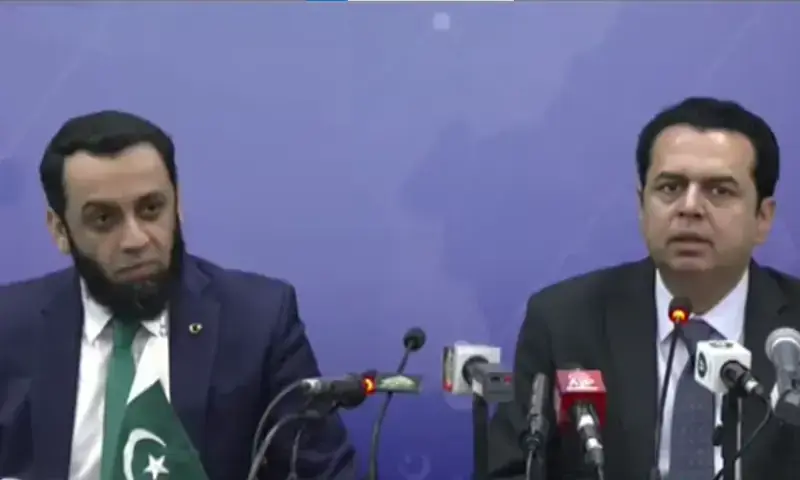TRADITIONAL Pakistan has long been aware of the destructive nature of coups: the abrupt overthrow of political governments and their replacement by autocratic regimes marked by little or no accountability. Under such regimes, the noose around dissent tightens, crackdowns on diversity become routine, and tolerance for alternative views fades.
In this connection, perhaps we can be somewhat grateful that such blatant usurpations of power are no longer fashionable. However, that does not mean that those autocratic tendencies have disappeared. While before political governments were accused of plane hijackings, today, ironically, the victims of those alleged kidnappings are accused of “kidnapping” the judiciary itself.
Through the 26th Amendment, the executive and legislature had been given de facto control over judicial appointments, the selection of justices, and evaluations of judicial performance. Efforts to convene a full court to determine the validity of the amendment had been neutered, at least so far, the seniority of Islamabad High Court judges had been tampered with, some judges were parachuted in to keep others out, the courts were full of judges seen to be in favor of the amendment, and whether or not that perception was accurate, the impression had been created that the constitutional bench of the Supreme Court had become a treasury court, while that of Sindh had become the “people’s court.”
In these troubled times, some dissent persisted, mainly on the part of a handful of judges in the Supreme Court and high courts. These judges were never an existential threat to the new system crafted by the establishment, nor are their current protests or expressions of concern a real danger to its continuation. Their dissent and expressions of grievance were, and perhaps continue to be, an inconvenience.
However, even that is now intolerable. With the notification of the revised Code of Conduct, it is clear that disagreement of any kind is unacceptable and that compliance is not a choice but a compulsion. Nothing makes this more evident than the decision to borrow from resolutions passed in the dark days of the Musharraf era, a time when democracy was a fairy tale and autocracy was easy prey.
Designed to uphold judicial independence, the Code of Conduct could lead to its abolition.
Article V of the Code deals with public controversies and how to avoid them. The previous version was broad and generic; the new one has a broad scope, with a tendency to expand to all forms of expression. In particular, it now prohibits public controversies arising from any “speech, writing, debate or comment in any forum,” essentially encompassing all forms of freedom of expression. However, “public controversies” remain undefined, making the article ripe for misuse.
The same article further establishes that a judge “shall not publicly discuss any judicial or administrative matter, nor make public any communication relating to his or her personal or official affairs.” At first glance, it may seem fine. However, there is a deeper concern involved in the writing of this section. How can a judge ensure that any of his comments, observations or conclusions (whether during the course of a judicial proceeding or in a written ruling) do not “cause” public discussion or controversy? The public’s reaction is far beyond a judge’s control, and isn’t that what is expected of a judge? Additionally, at times a judge may need to justify or reason a decision by citing communications relating to personal or official matters. Once cited, these inevitably become public record, leaving the judge technically liable for the misconduct under this vaguely worded provision.
Another notable revision concerns judges’ attendance at events, meetings and social functions, from which the Code now orders them to abstain completely. Even requesting an invitation to an international conference, among other things, regardless of whether it involves legal matters, could constitute misconduct. This restriction is alarming, as international conferences and similar forums allow judges to interact with diverse perspectives, broaden their understanding, and stay informed about current global events.
Furthermore, if a judge is personally criticized or his character attacked, he is prevented from responding in any way. Instead, an institutional response is prioritized. Similar processes apply to attempts to influence judges. However, if history is any guide, institutional responses (particularly in times of upheaval) tend to be timid, if not completely absent.
Clauses like these might not be controversial in mature democracies where the judiciary operates independently, free of legislative or executive influence. In such systems, where safeguards against interference and corruption are firmly entrenched, and where there is a general culture of respect between the various institutions, a code of conduct of this nature could work effectively. But in countries where democracy is “made to order” – and that too by those whose names do not appear anywhere in the Constitution as governing authorities – these codes serve rather as swords of Damocles hanging over the heads of independent judges, or those who dare to express independent thoughts, even in moderation.
In such circumstances, such a Code of Conduct may well serve more as a tool for misuse than as a shield against bad practice. In essence, it can be used to manufacture misconduct rather than regulate it, its true purpose being to eliminate independence, remove free-thinking judges, and protect those who do not. Designed to defend judicial independence, it could result in suppressing it.
Some may think that we are going out of our way to highlight “possible” misuse of this code, where, in fact, no actual misuse has come to light. However, in the context of a strained system that already struggles to give people a voice, it is not unreasonable. In fact, in these times, if something can be perceived as far-fetched, it is its innocent, effective and judicious use, without bad applications. And that is why it is perhaps not inappropriate to say that this Code, in its current form, may do wonders for established democratic orders, but may wreak havoc on others. Unfortunately, whether we like it or not, in today’s world we are “the others.”
The writer is a lawyer based in Karachi.
X: @basilnabi
Published in Dawn, November 1, 2025








